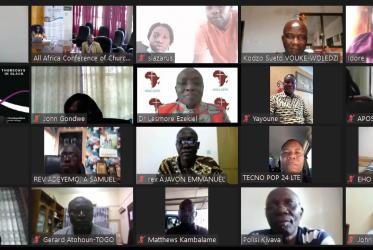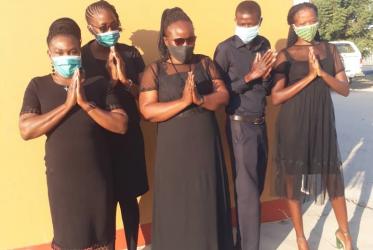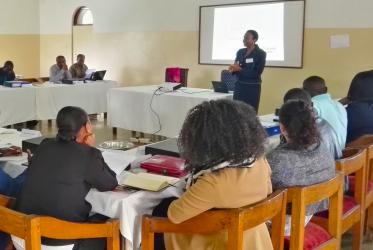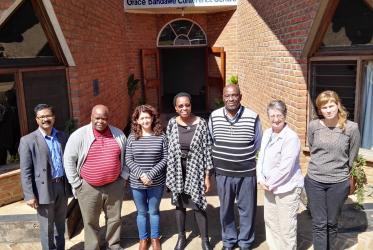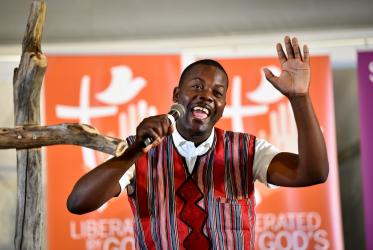Displaying 1 - 20 of 26
Thursdays in Black is growing in Namibia
20 August 2020
BBC radio shows in Scotland highlight gender justice, WCC leaders
27 November 2018
EKD delegation, other visitors grace WCC
26 October 2018
#WCC70: Kirchen als „Vermittler von Freiheit“
12 February 2018
#WCC70: Churches as “freedom agents”
12 February 2018
#WCC70: Las iglesias como “agentes de liberación”
12 February 2018
#WCC70: Les Églises, des «agents de la liberté»
12 February 2018
African youth takes stand at first ever WCC Eco-School
03 August 2017
“Do you know where to search for your lost child?”
18 July 2017
Applications open for WCC Eco-School
10 May 2017
